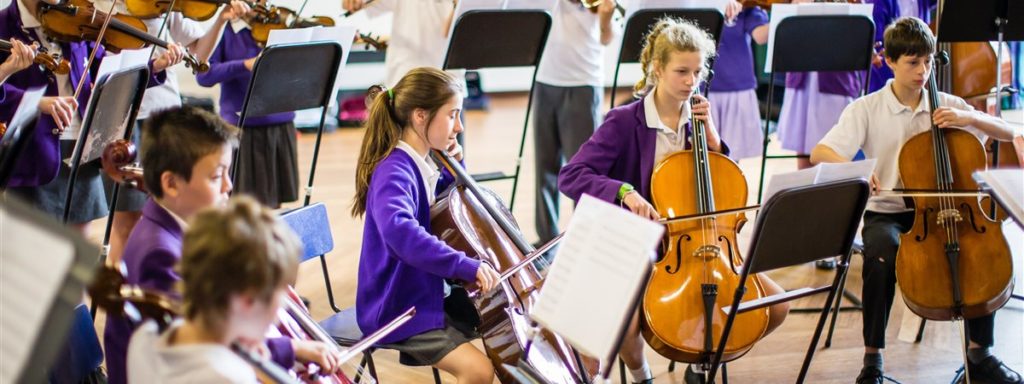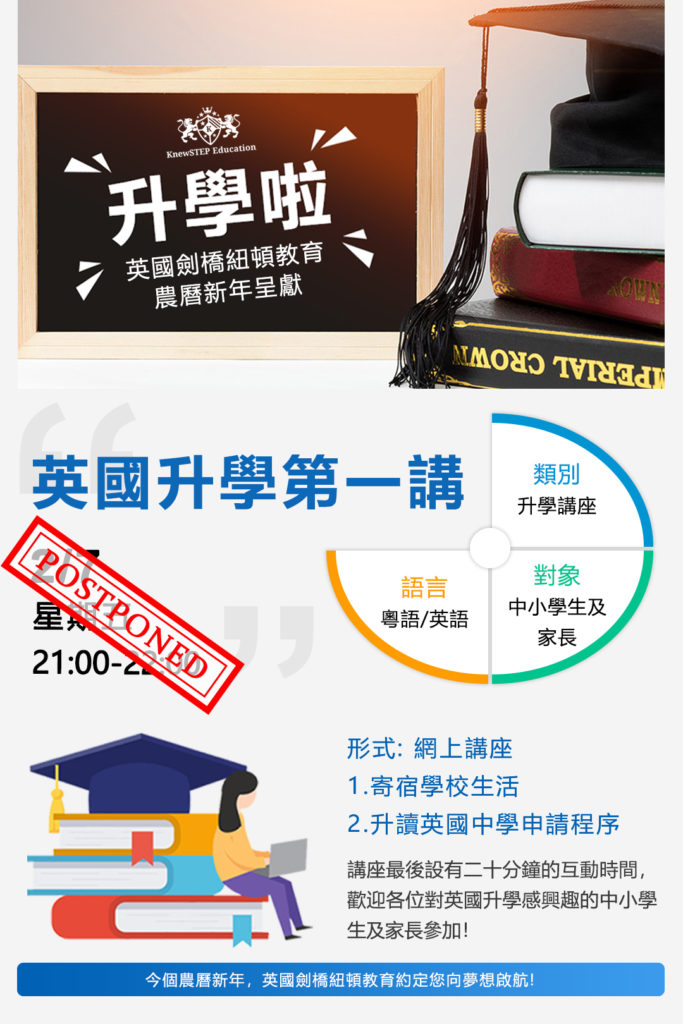Guide for studying abroad in the UK: Boarding schools or Day schools?
13th February 2020
Many parents and students consider the UK to be a popular country for studying abroad. Choosing between boarding schools and day schools is always parents’ concern. Our post today will discuss and compare these two choices regarding the advantages and disadvantages of both types of the school.

First, let’s discuss the pros and cons of studying in a boarding school. The main difference of boarding school from a general day school in the UK refers to the learning style in which student live in the school residential hall together. The residential programme is often managed by a designated residential manager who is on-site to ensure the safety of their students living in the school, as well as provide the students the opportunities to maximise the use of their leisure time after-class. Students can choose their own after-school activities such as quizzes, games, sports and other themed activities like a career talk. This allows the students to maximise their time in the school and immerse into the local study life style with ease. The UK boarding schools recruit students from all over the world, which could provide valuable educational experiences for students. Students are able to know people from different regions and countries, they then learn to communicate, study and mingle with people with other cultural backgrounds and experiences, in which students can better integrate into the local community. Certainly, there are also downsides for attending boarding schools, for example, boarding schools generally charge higher fees compared to the day schools as there is a team of staff who fully manages the study and life of their students.


In this way, what are the pros and cons for day schools in the UK? One major difference is that students in day schools normally return back to their host family’s homes nearby after the class. By opting for the day school system, students will have the opportunity to integrate into the life of the local family and at the same time, have more opportunities to exchange and communicate with local people in the society, which is crucial for the students when acquiring a second language. Not only will the help students understand the English culture, customs and values, but it also broadens the children’s vision for their future development. Still, there are other things to be considered. For instance, if parents would like to send their non-EEA/EU children to study in day schools in the UK, families will need to consider the option of moving abroad with their children or sending the students to the UK to be with their relatives. Certainly, one can also send the children to a local host family that lives closer to the school. However, host families could be quite varied in quality and therefore it is not always easy to find a suitable host family that is the best for your own child. Some schools will ask local agents to search for host families for the students, however, since there are no common standards and inspection systems for host families currently, the selected host family can very likely be randomly chosen. The atmosphere and culture of the host family would have a significant impact on the study life of the international students. In some cases, there is also the situation that the parents were left without any choices as the schools simply do not have enough residential places for the students. Therefore, it is always useful to check with the schools first to confirm the sufficient residential quota for your children.


Lastly, let us review what we have discussed about boarding schools and day schools in the UK and which one you should go for!
Students who are suitable for day schools could be those who:
1. hope to quickly improve their language skills and learn more about the local culture;
2. desire to study with local students in the International study environments.
Students who are suitable for boarding schools should who:
1. tend to be lacking independence and self-discipline skills, and those who are easily intimidated or stimulated by others
2. expect to improve their learning capacities, as private boarding schools usually provide students with evening self-study sections that are accompanied by teachers and tutors.

Thank you for reading our information, hope you have a better understanding of boarding schools and day schools in the UK now. For an independent and mature student, both types of schools could be considered if it does not cause a huge financial burden to his/her own family. KnewSTEP Education wishes all international students choose the most suitable way to start a new journey of their life after a careful evaluation of their own unique character and needs, as well as the pros and cons of both types of schools.

#英國寄宿學校 #英國選校 #2020出發 #體驗像劍橋學生一樣的學習 #KnewSTEP #Cambridge #暑期研學營2020 #劍橋師資 #全人教育 #個性化學習 #書院式輔導
Photo Credit:
1. https://www.sms.edu
2. http://www.kcs.cambs.sch.uk/
3. https://www.stephenperse.com
4. https://www.kings-school.co.uk
5. https://www.ipswich.school
Learn more about:
-> Educational consultancy service: https://www.knewstep.com/our-services/educational-consultancy/
-> 3+3+3+1 study abroad package: https://www.knewstep.com/3-3-3-1-study-aboard-package/
-> Pre-Boarding school Empowerment Programme 2020: https://www.knewstep.com/our-services/pse-programme/



